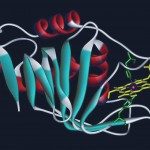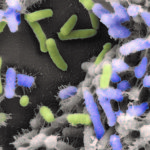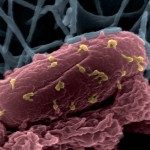Lien vers Pubmed [PMID] – 39225712
Lien DOI – 10.1039/d4nr01884b
Nanoscale 2024 Sep 26;16(37): 17567-17584
The ability of bacteria to interact with their environment is crucial to form aggregates and biofilms, and develop a collective stress resistance behavior. Despite its environmental and medical importance, bacterial aggregation is poorly understood and mediated by few known adhesion structures. Here, we identified a new role for a surface-exposed Escherichia coli protein, YfaL, which can self-recognize and induce bacterial autoaggregation. This process occurs only under acidic conditions generated during E. coli growth in the presence of fermentable sugars. These findings were supported by electrokinetic and atomic force spectroscopy measurements, which revealed changes in the electrostatic, hydrophobic, and structural properties of YfaL-decorated cell surface upon sugar consumption. Furthermore, YfaL-mediated autoaggregation promotes biofilm formation and enhances E. coli resistance to acid stress. The prevalence and conservation of YfaL in environmental and clinical E. coli suggest strong evolutionary selection for its function inside or outside the host. Overall, our results emphasize the importance of environmental parameters such as low pH as physicochemical cues influencing bacterial adhesion and aggregation, affecting E. coli and potentially other bacteria’s resistance to environmental stress.









